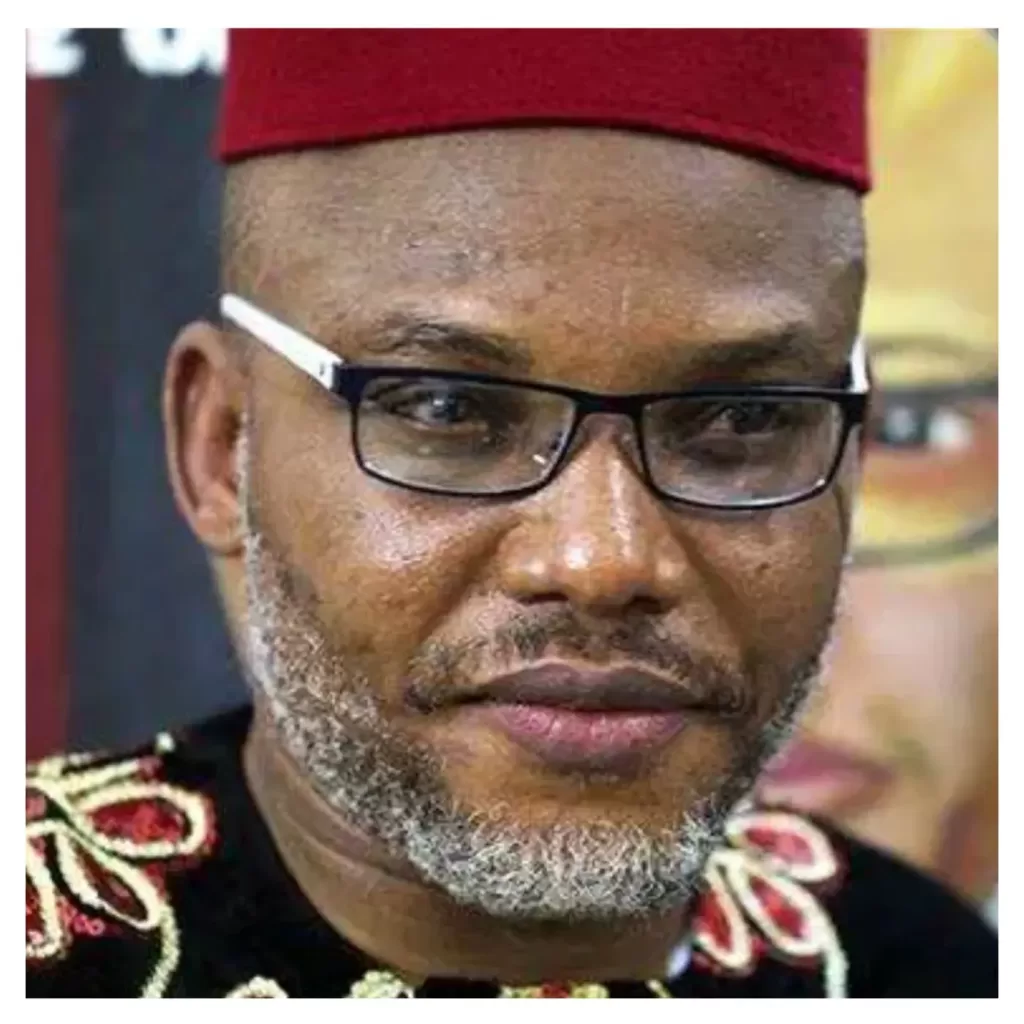
The Global Defence Consortium of the detained leader of the Indigenous People of Biafra (IPOB), Nnamdi Kanu, has accused the Federal High Court in Abuja of continued bias and denial of fair hearing, following what it described as fresh irregularities during Friday’s court proceedings presided over by Justice James Omotosho.
In a statement released on Friday by Barrister Onyedikachi Ifedi, after the sitting, the defence consortium said the events of the day “once again exposed the structural injustice and procedural violations that have marred the ongoing trial.”
According to the statement, Kanu informed the court that his legal team had been disengaged only a day earlier, and that Thursday, being a non-visitation day at the DSS facility where he is detained, made it impossible for him to receive his legal files.
His Special Counsel and his brother, who usually deliver such materials, are both reportedly in government detention.
The defence maintained that Kanu’s request for time to study his file was a constitutional demand under Section 36(6)(b) of the 1999 Constitution and not a ploy to stall the trial.
Kanu also sought an extension of his legal and medical consultation days from three to five per week.
Justice Omotosho reportedly granted this request but claimed the defendant had failed to utilise earlier opportunities for consultation provided by the court.
The defence, however, faulted the claim, arguing that it was unreasonable to compel a defendant in a capital offence trial to begin his defence after only “three hours of consultation.”
They described the move as “perverse and contrary to the principle laid down in Abacha v. State (2002).”
The statement further alleged that the DSS continues to bug Kanu’s privileged conversations with his lawyers, in violation of Sections 35 and 36 of the Constitution and Rule 14 of the UN Basic Principles on the Role of Lawyers.
The defence team said Justice Omotosho’s admission that he vacated his courtroom to allow Kanu meet his lawyers “amounted to a confirmation that fair hearing had already been violated.”
“Once a breach of fair hearing is established, the court is bound to terminate proceedings,” the statement read, citing Madukolu v. Nkemdilim (1962) and Tukur v. Government of Gongola State (1989).
Despite this, the judge reportedly insisted that no evidence had been placed before him to justify halting the case, a position the defence described as illogical, given that a pending motion challenging the court’s jurisdiction “remained unheard.”
The defence team also expressed concern that the court had yet to address its application to facilitate the appearance of defence witnesses from the United States, Kenya, the United Kingdom, and Ethiopia.
It is alleged that the silence “reinforces the perception of a deliberate effort to frustrate defence evidence.”
In another development, the defence team claimed that when Kanu sought Certified True Copies (CTCs) of the court’s transcript and ruling to enable him to proceed on appeal, Justice Omotosho abruptly adjourned the matter, called another case, and ordered Kanu to leave the courtroom.
“This act,” the defence team said, “is reminiscent of contempt for open justice and violates Section 36(1) of the Constitution, which guarantees public hearing and access to court records.”
According to the defence team, “These are the facts from today’s proceedings. Don’t let them feed you lies.”
 Premium News
Premium News